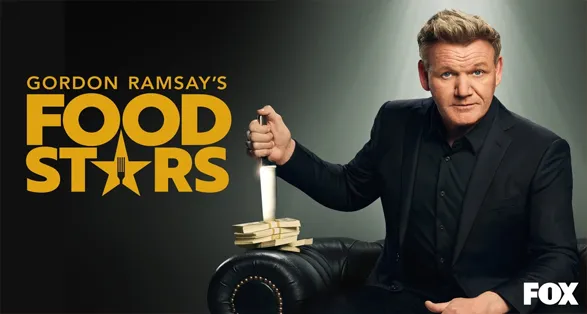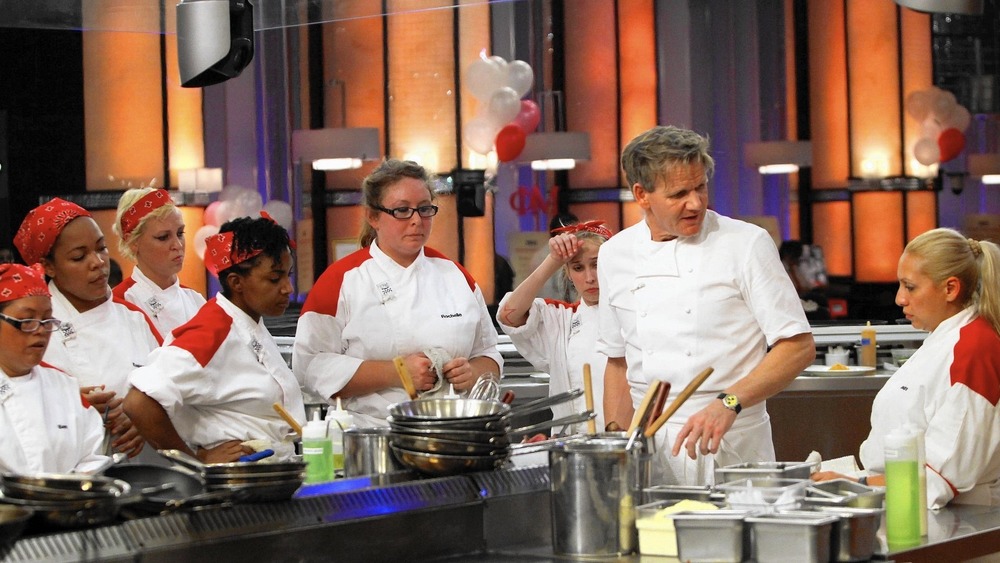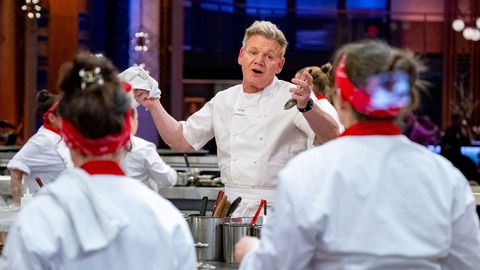
The heat in Gordon Ramsay’s world is not just confined to the kitchen. Recently, a number of former contestants from the hit reality series Hell’s Kitchen have stepped forward with claims about their experiences on the show and their interactions with Ramsay himself. The revelations have stirred debate among fans and critics alike, forcing audiences to reassess the dynamics of a program that has captivated viewers for nearly two decades with its blend of culinary brilliance, competitive intensity, and Ramsay’s trademark fiery outbursts.
Since its debut in 2005, Hell’s Kitchen has been one of the crown jewels of Ramsay’s television empire. The show, which features aspiring chefs battling through high-pressure cooking challenges in hopes of winning a coveted head chef position, has always thrived on drama. Ramsay’s explosive temper, his biting critiques, and the relentless pace of the kitchen have become synonymous with the series. For many fans, this combination is exactly what makes the show so compelling. But for the chefs who have lived through it, the experience is often far more complicated.
Several former contestants have described Hell’s Kitchen as both a once-in-a-lifetime opportunity and a grueling ordeal. Some have praised Ramsay as a mentor who pushed them beyond their limits and helped them grow, while others have characterized the environment as excessively harsh, even humiliating at times. Among the most common claims are that the pressure-cooker atmosphere—while perfect for television—often left contestants physically and emotionally drained. A few have alleged that producers heightened tensions intentionally, placing contestants in situations designed to spark conflict, all while Ramsay’s fiery persona amplified the drama.

Ramsay himself has long defended his style, insisting that the intensity reflects the reality of working in top-tier kitchens. To him, the sharp words, shouted orders, and relentless pace are not acts for the camera but an authentic representation of what it takes to succeed in the competitive culinary world. His supporters point to the long list of Hell’s Kitchen alumni who have gone on to build successful careers, crediting Ramsay’s tough-love approach as a catalyst for their growth. To these fans and chefs, the so-called “claims” are simply part of a broader truth: not everyone can handle the pressure of fine dining at the highest level.
Still, the voices of dissent cannot be ignored. A handful of contestants have described moments when the line between mentorship and hostility felt blurred. Some recall instances of public humiliation that lingered long after the cameras stopped rolling. Others have claimed that the hours were punishing, the expectations impossible, and the emotional toll immense. These accounts have reignited ongoing discussions about the ethics of reality television—how much of what viewers see is authentic, how much is engineered for drama, and what impact it leaves on those who participate.
Interestingly, the claims have not appeared to diminish Ramsay’s popularity. If anything, the controversy highlights the duality of his public persona: part tyrant, part teacher. His fans argue that his bluntness and refusal to sugarcoat the truth are exactly why he commands respect, both on screen and in the culinary world. They note that in addition to his televised tirades, Ramsay has also been shown offering quiet encouragement, heartfelt praise, and genuine opportunities to chefs who impress him. The complexity of his character—equal parts intimidating and inspiring—is what has kept audiences hooked for nearly twenty years.

The timing of these recent claims is also significant. In today’s cultural climate, conversations about workplace culture, mental health, and ethical reality TV production have become increasingly prominent. Where audiences once laughed at contestants being berated or breaking down under pressure, viewers now ask harder questions: Is this treatment necessary? Is it exploitative? Does it cross a line? Hell’s Kitchen sits at the center of these debates, and Ramsay, as its face, inevitably finds himself under scrutiny.
Yet Ramsay has always thrived in the fire of controversy. Throughout his career, he has faced criticism for his temper, his language, and his uncompromising standards, and each time he has emerged stronger, with his brand intact and his empire growing. Beyond Hell’s Kitchen, his portfolio of shows—including MasterChef, Kitchen Nightmares, and Next Level Chef—demonstrates that audiences continue to embrace his signature mix of intensity, passion, and authenticity. In fact, some argue that the very qualities fueling these claims are also what make him one of television’s most enduring personalities.
